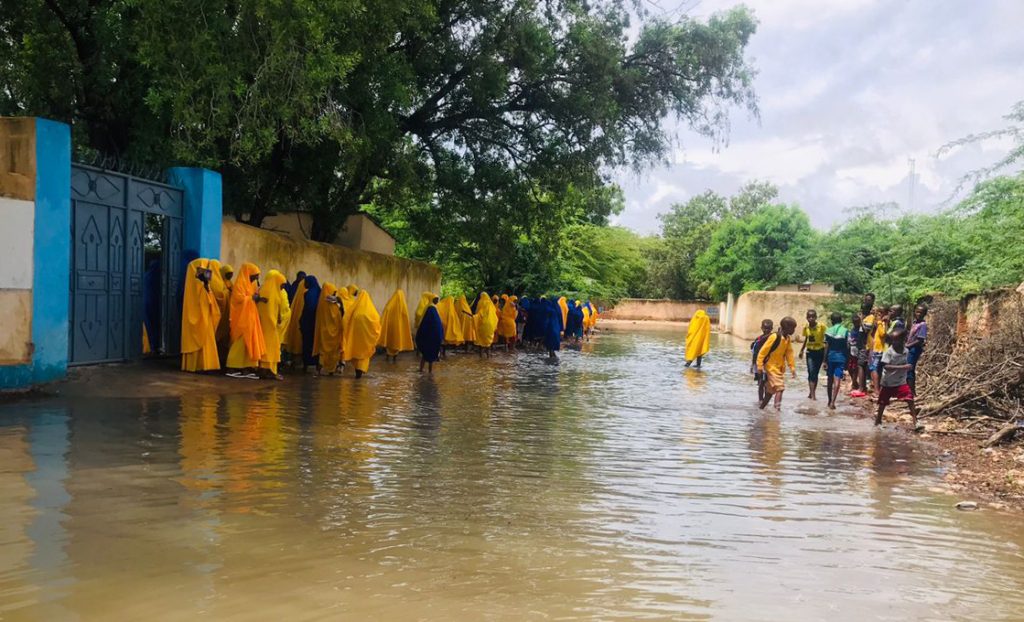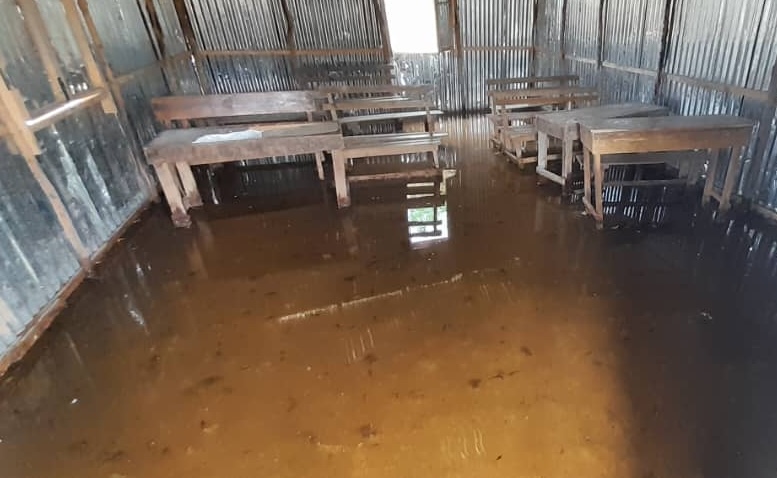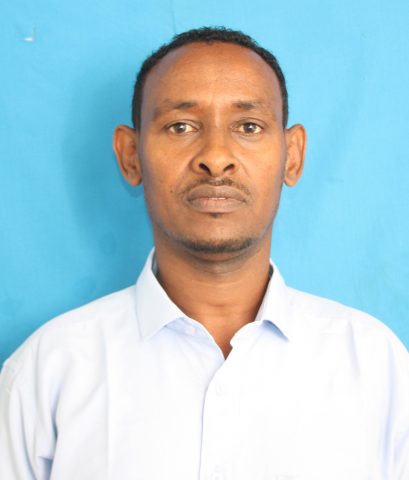Flooding has disrupted the education of millions of children in south-west Somalia

As world leaders, UN experts, and climate specialists discuss mitigating the effects of climate change in the world, they continue to wreak havoc on millions of lives around the globe, especially in Africa and other third-world countries.
IN MY RECENT visit to schools supported by FCA Somalia in the hard-to-reach areas of Elberde, Hudur, and Baidoa in late November 2023, I witnessed firsthand the devastating impact of the El Niño rains.
These heavy rains have triggered widespread flooding, resulting in the loss of life, the displacement of thousands of families, and significant damage to critical school infrastructure.
Schools supported by FCA Somalia have been severely affected, with walls, windows, roofs, latrines, and even temporary learning spaces that were previously constructed by FCA, being destroyed or rendered unusable. This poses serious safety risks for students, as broken windows and walls exposed them to potential hazards.

Furthermore, the heavy flooding has left most schools waterlogged, rendering routes impassable for both students and teachers. This disruption in transportation has severely hampered teaching and learning activities, even in areas where the rains have temporarily subsided.
Increased drop-outs
Consequently, many learners have been forced to remain in their settlements or homes, leading to increased dropout rates. Additionally, the situation has put young girls at a higher risk of early marriage as their families seek alternative means of survival amidst these challenging circumstances. It is disheartening to note that many of these individuals were either recently or previously displaced due to drought or conflict before the onset of the rains, exacerbating their suffering.

Moreover, the waterlogged conditions have resulted in the outbreak of waterborne diseases such as dysentery and cholera, affecting both students and internally displaced persons (IDPs) in the surrounding areas of the schools, and many learners have been admitted to local clinics with the support of FCA school-based child protection focal points and school community leaders.
It is crucial to highlight that numerous schools have also suffered significant damage and lost desks and other essential teaching and learning materials, including books, as a result of the floods, and the few schools that have survived the flooding are being utilised as shelters for the affected IDPs.
Prolonged effects of flooding
Considering this disaster, the government, specifically the Ministry of Education, had taken the necessary step of temporarily closing schools for a period of two weeks. This decision was made to prioritise the safety of learners. However, by the time of my visit, the government had reopened the schools, allowing students to resume their education. Nevertheless, the effects of the flooding are still visible in many schools, as they have suffered significant damage due to the heavy devastation caused by the Elinino-induced rains.

On our part as FCA Somalia, we actively responded to the floodings by working and coordinating alongside our partners and other key actors, such as education cluster partners, in the areas of assessment and support. We also supported the most affected schools by distributing learning materials to a few affected learners whose materials were destroyed by the flooding.
In the future, we will conduct community advocacy to raise awareness about the importance of building a protective learning environment for children. To achieve this, we will provide training sessions on appropriate climate change and disaster risk reduction (DRR) to teachers, child club members, the school community, and the administration.
We aim to empower the school community, teachers, and learners and enhance their participation in creating a safer and more resilient educational environment. By equipping teachers, child club members, and school administrators with the necessary knowledge and skills, we believe that we can better prepare them to handle future challenges related to climate change and natural disasters.
The writer of this blog is FCA Somalia’s Senior Education and Quality Advisor in Somalia
Find out more about FCA’s work in Somalia
